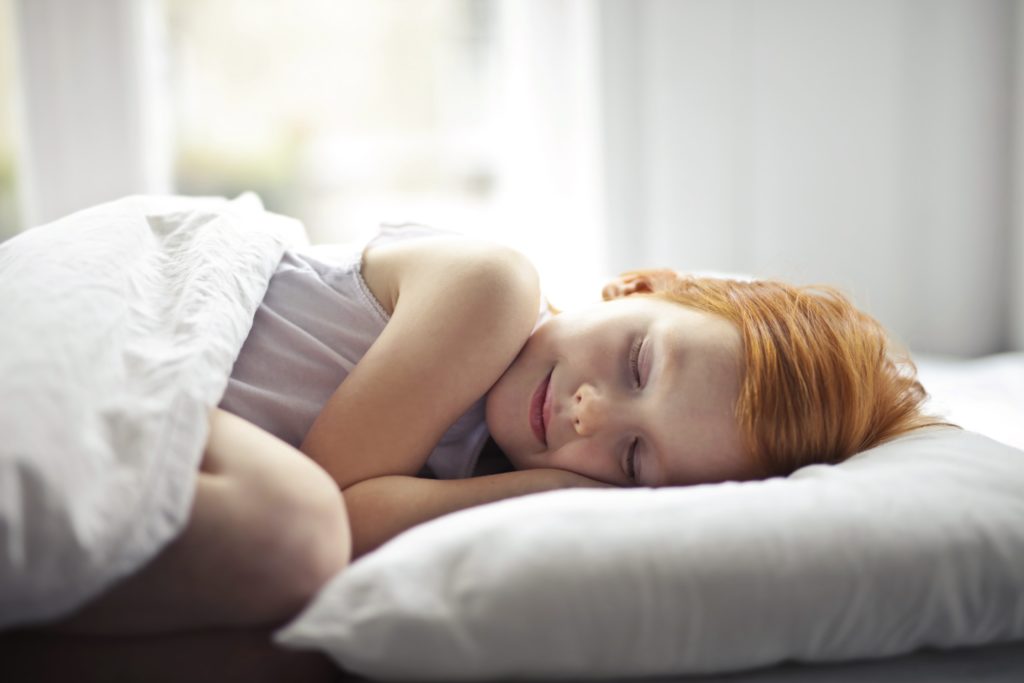Common sleep problems in children
Good sleep is vital for children’s growth, development, immunity, learning and well being which is why sleep problems in children can be concerning for parents.
 How much sleep do children need?
How much sleep do children need?
Children need more sleep than adults, but the amount they need decreases with age. Toddlers and pre-schoolers require anywhere between 12 and 13 hours sleep, every 24 hours, while children aged 5-11 require anywhere between 9 and 11 hours sleep each night. The average adult requires about 7 to 9 hours.
Common sleep problems in children
Sleep problems in children are quite common and often have an impact on the child’s health and well being. They can be caused by a number of factors.
Medical issues
Children may wake up during the night due to medical issues such as obstructive sleep apnoea (OSA), or illnesses such as ear infections, coughs or colds. If you suspect your child has OSA, consult your doctor.
Behavioural sleep insomnia
Most sleep problems in children are classified as behavioural. The way a child gets to sleep when they go to bed is how they expect to go to sleep again, if they wake in the night. So, if they are rocked to sleep in the beginning of the night, they’ll want to be rocked again in the middle of the night. This ‘sleep association’ can form the basis of behavioural insomnia of childhood.
Other common behavioural problems include:
- delayed sleep phase – when your child goes to bed late and ends up sleeping in unless they’re woken up
- children not wanting to sleep in their own bed, or continuing to get out of bed.
Anxiety-related insomnia
Just like adults, children worry too. Sometimes their worries can prevent them from falling asleep quickly, or may cause them to wake during the night. If the problem persists, seek professional help.
Sleepwalking
Sleepwalking in children is quite common affecting around 7-15% of children. Those aged between 4 and 12 years are more likely to sleepwalk but often grow out of it as teenagers. Sleepwalking often happens in the first few hours of the night. While sleepwalking doesn’t usually need treatment, talk to your doctor if you’re concerned about your child’s sleepwalking habits.
Nightmares
Nightmares are bad dreams that wake children, often leaving them feeling scared or upset. This can make it difficult for them to fall back to sleep. Occasional nightmares are normal but recurrent or frequent nightmares might be due to stress or traumatic events. If you’re concerned, speak to your doctor.
Night terrors
Night terrors in children aren’t as common as nightmares, but they still disrupt sleep. When your child suddenly gets very agitated while deeply asleep, they’re said to have a night terror. Children don’t wake from a night terror, but they may look panicked, their heart may race, and they may breathe fast and begin to sweat. Children may cry out or scream. While disconcerting for parents, night terrors don’t hurt your child, and your child won’t remember anything in the morning. They are most common between 2 and 4 years of age, but may persist until the age of 12. Most children outgrow them by puberty.
Wetting the bed
Sleep problems in children can also be caused by bed wetting. This is most common in children under 7 years, but can also happen in older children. Bed wetting can occur during normal overnight toilet training, or as a result of the child sleeping deeply and not waking up when their bladders are full. Children with smaller bladders are also more likely to wet the bed, as are those who produce larger amounts of urine during the night. Most children outgrow bed wetting, but if the issue persists, there are many effective treatments available.
In the meantime, BedGuard have a range of Australian-made waterproof mattresses that offer the highest level of protection, while keeping your mattress in optimal hygienic condition. Our mattresses are specially designed to provide expert protection from bed wetting and are available in a range of sizes. Browse our range today.





